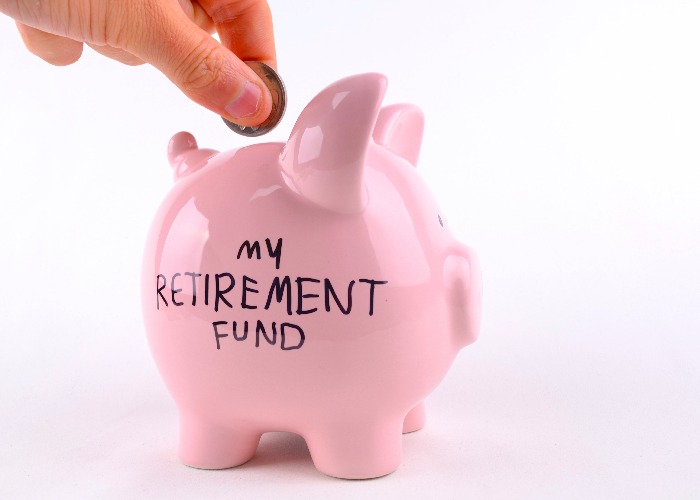Pensions: how to save for retirement when you're young

If you follow this formula, you should have enough cash set aside when it comes time to retire, experts say.
Many young people are put off saving into a pension because of the sheer scale of the task and the decisions they have to make around how much to save.
The advent of auto-enrolment has seen the Government take some of the responsibility out of employees’ hands by automatically placing them into their workplace pension scheme, although they do have the ability to opt-out.
The Government has also set the amount that workers save, and by April 2019 the total amount going into a workplace pension will be 8%, made up of a 4% employee contribution, 3% employer contribution and 1% Government top-up through tax relief.
However, there are concerns that this isn’t enough, so what should you be saving and where are you supposed to find the extra cash?
A simple rule of thumb
According to Darren Philp, director of policy and market engagement at The People’s Pension, workers who are unsure about how much to save or those concerned about not saving enough for a happy retirement should follow a simple rule:
“As a rule of thumb, if you want a half decent income in retirement, take the age at which you start saving and you should save half [that number],” he said.
“If you start saving at 20 years old, you should save 10% [of your wages] over your lifetime and will get an OK pension. If you delay it until you're 40, you'll have to set aside a fifth of your income. ”
Philp said the best way to save is to “start saving early and save little and often” but acknowledged that young people in their 20s had “competing demands” for their money, particularly if they want to get on the housing ladder.
“Saving for the long term is naturally going to take a back seat to buying a home,” he said, but added that auto-enrolled pension workplace pension schemes were a good place to start.
“If you are opted into an auto-enrolment pension…you get free money from your employer, that is a great deal,” he said.
“Workplace pensions and auto-enrolment have bought lots of people into saving for the first time and young people have the benefit of starting early but we do need to make pensions more exciting and engaging.”
Of course, there's also the Lifetime ISA that's launching next April. Anyone aged under 40 can bag themselves up to £1,000 a year from the Government as an incentive to save for retirement (or their first home). Read our full guide to the Lifetime ISA and how you can make the most of it.
Finding the spare cash
Even if a young person has made the decision to save for retirement, the major obstacle for many is finding the spare income to put away each month.
A Young Money survey by consultants revealed of those aged 18 to 24, a total of 42% said they did not earn enough to save.
Jason Butler, a financial education expert and former independent financial adviser, said young people have to change their money mindset and realise the consequences of living for the moment.
“There is no easy answer. The responsibility is with young people themselves. [If they don’t save] they know they will live on cat food in their 60s – they need to understand the implications of small choices they make every day”.
Philp agreed that small changes that add up over time is the best way to save and savers should identify places where they can cut down gradually.
“It’s not about being a party pooper because people need to enjoy their lives and it’s not good having pension people saying put all your money,” he said.
“It’s about making little changes…Rather than five coffees a week, buy two coffees a week – it’s simple behavioural change that can make a big impact.”
The simple changes along with the compounding of saving – where interest earns its own interest and grows savings more quickly – can become “a significant amount of money”, said Philp.
It takes dedication to build up good habits and see the benefits of small savings.
“It’s like running a marathon, you wouldn’t just go out and run 26 miles. Break it into individual goals. You don’t have to aim for the full marathon at the start but if you keep training it become self-motivating.”
Compare the stocks & shares ISAs
Essential reading on pensions:
How to get a State Pension forecast
Pension freedoms: all you need to know
The Basic State Pension and new flat-rate State Pension explained
Over half of loveMONEY readers ‘worried’ or ‘terrified’ about pension prospects
Comments
Be the first to comment
Do you want to comment on this article? You need to be signed in for this feature